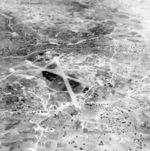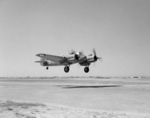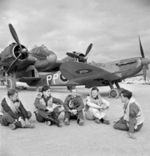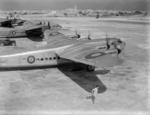RAF Luqa
| Type | 147 Air Base | |
| Historical Name of Location | Luqa, Malta | |
| Coordinates | 35.857500000, 14.477500000 |
Contributor: C. Peter Chen
ww2dbaseRAF Station Luqa on the island of Malta was the headquarters of the British Royal Air Force Mediterranean Command during WW2. It remained a RAF base after the war, but the airfields increasingly became shared with civilian flights. RAF departed the base in 1979 largely due to the high cost for leasing the land from the Maltese government. The site of the former RAF Luqa is now the Malta International Airport.
ww2dbaseSource: Wikipedia
Last Major Update: Dec 2014
RAF Luqa Interactive Map
Photographs
 |  |  |  |
RAF Luqa Timeline
| 18 Jan 1941 | German Luftwaffe Stuka dive bombers attacked Malta for the third consecutive day, destroying 6 RAF aircraft and damaging many more at the Luqa and Hal Far airfields. |
| 29 Jan 1945 | Winston Churchill arrived at RAF Luqa on Malta. |
Você gostou deste artigo ou achou este artigo útil? Se sim, considere nos apoiar no Patreon. Mesmo USD $1 por mês já vai longe! Obrigado. Por favor, ajude-nos a espalhar a palavra: Fique atualizado com WW2DB: |
Visitor Submitted Comments
14 Mar 2015 04:41:58 PM
Adding to Alan’s comment:
CW20 was Curtiss-Wright’s designation for the Commando, C-46 in the USAAF. The CW20 “Saint Louis” was the only Commando flown by BOAC at the time.
All visitor submitted comments are opinions of those making the submissions and do not reflect views of WW2DB.

Luqa, Malta
Latitude-Longitude:
35.8575, 14.4775
- » 1,172 biographies
- » 337 events
- » 44,911 timeline entries
- » 1,245 ships
- » 350 aircraft models
- » 207 vehicle models
- » 376 weapon models
- » 123 historical documents
- » 261 facilities
- » 470 book reviews
- » 28,524 photos
- » 365 maps
Winston Churchill
Por favor, considere nos apoiar no Patreon. Mesmo R$1 por mês já faz uma grande diferença. Obrigado!
Ou, por favor, nos apoie adquirindo alguns produtos do WW2DB na TeeSpring. Obrigado!
14 Mar 2015 09:13:11 AM
Supplying Malta by sea through waters infested by enemy submarines and under skies patrolled by enemy fighters was a costly business. After October 1941 vital supplies were flown in nightly by three C-Class flying boats and two Catalinas. They were joined in May 1942 by the CW20 Saint Louis, an American landplane which was then the largest twin engined aircraft in flight. Saint Louis, despite its size needed to be unloaded, refuelled and reloaded in one night. This invariably took place during heavy air raids, for Saint Louis used the airfield at Luqa, a prime target for the German bombers. It became standard practice for ground crews at Luqa to keep on working as long as the bombs fell on the airfield perimeter, and the searchlights were deliberately beamed at the raiders at angles well away from the tarmac. Only when the searchlights began to sweep directly over the airfield did the steadfast ground crew decide that it was time to jump for cover, knowing that they would soon be on the receiving end of Axis bombs.